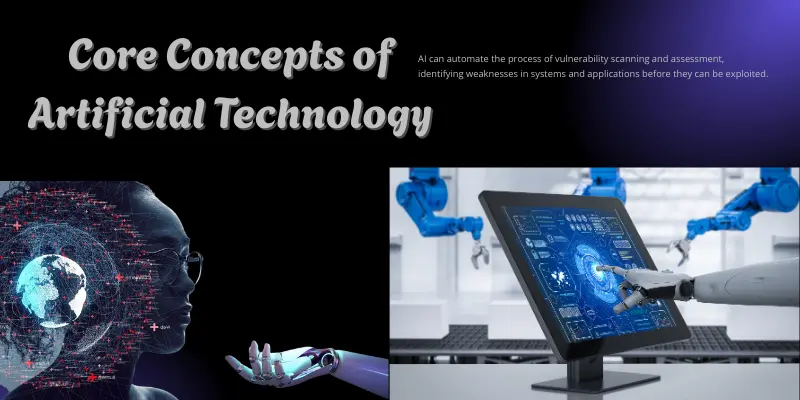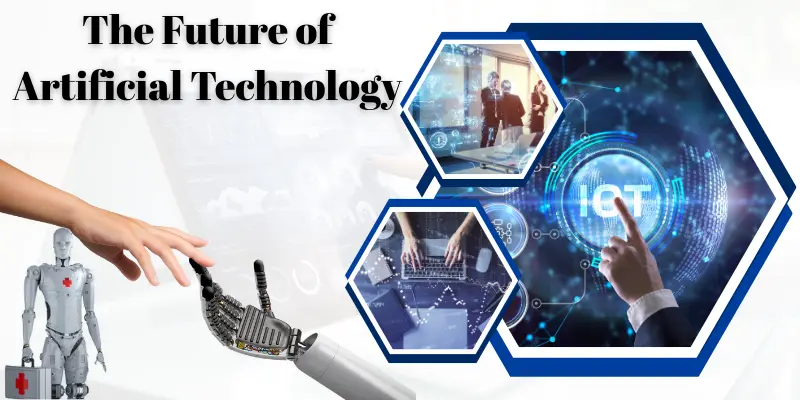Artificial Technology – Changing Life, Future and Systems
Published: 08/05/2025
Artificial Technology is reshaping the world around us in ways we could only imagine a few decades ago. It refers to the use of advanced machines, software, and systems that are designed to perform tasks that typically require human intelligence. This includes areas like problem-solving, learning, decision-making, and even understanding complex data. With the rapid development of Artificial Intelligence (AI) and machine learning, artificial technology is now deeply embedded in our daily lives, from smart devices to the automation of industries. As technology continues to evolve, it promises to bring even greater changes, transforming how we work, live, and interact with the world.
Table of Contents
Core Concepts of Artificial Technology
Artificial Technology is built on several key concepts that make it powerful and capable of transforming industries. The main components here are include.

- Artificial Intelligence (AI)
- Machine Learning (ML)
- Automation
These core concepts work together to create intelligent systems that are changing the way we interact with technology. From self-driving cars to voice assistants, Artificial Technology is becoming a powerful tool in solving real-world problems.
Applications of Artificial Technology
Artificial Technology is revolutionizing many areas of our daily lives, providing solutions to complex problems and creating new opportunities. Here are some key areas where Artificial Technology is making a significant impact:
- Healthcare
- Transportation
- Finance
- Smart Homes
- Retail
These are just a few examples of how Artificial Technology is applied across different sectors. As technology continues to advance, more industries will harness the power of AI to improve efficiency, reduce costs, and enhance the quality of life.
Challenges and Ethical Considerations in Artificial Technology
As Artificial Technology continues to advance, it brings with it both great opportunities and significant challenges. While it offers many benefits, it also raises important ethical questions and concerns. Here are some key challenges and ethical issues associated with Artificial Technology.
- Job Displacement
- Privacy and Data Security
- Bias and Discrimination
- Ethical Decision-Making
- AI Control and Misuse
- Regulation and Accountability
While Artificial Technology has the potential to bring about many positive changes, it is essential to address these challenges and ethical considerations. By carefully managing the development and deployment of AI, we can ensure that it benefits society without causing harm.
The Future of Artificial Technology
The future of Artificial Technology holds exciting possibilities, with advancements that could radically change every aspect of our lives. As AI and related technologies continue to evolve, they are expected to reshape industries, improve efficiencies, and create new opportunities. Here are some key aspects of how Artificial Technology is expected to develop in the future.

- Smarter AI Systems
- Integration in Everyday Life
- AI in Healthcare
- Autonomous Transportation
- AI in Education
- Workplace Automation
- AI Ethics and Regulation
- Global Impact
The future of Artificial Technology is filled with promise. As technology continues to progress, it will offer more intelligent, efficient, and innovative solutions that will change how we live, work, and interact with the world.
Advantages and Disadvantages of Artificial Technology
Benefits of Artificial Technology
| Pros of Artificial Technology |
|---|
|
Disadvantages of Artificial Technology
| Cons of Artificial Technology |
|---|
|
Common FAQs about Artificial Technology
Artificial Technology refers to the development of computer systems or machines that can perform tasks that usually require human intelligence, such as problem-solving, learning, and decision-making.
AI has the potential to automate certain jobs, particularly those that are repetitive or require minimal decision-making.
While AI has many benefits, its safety depends on how it is developed and used. Proper regulations and ethical guidelines are necessary to ensure that AI is used responsibly and safely.
Some risks include job displacement, privacy concerns, biases in AI decision-making, and the potential for misuse, such as in surveillance or warfare.
AI impacts everyday life through smart devices, personalized services, healthcare advancements, and automated systems that make tasks more efficient and convenient.
Yes, AI is constantly improving, and in the future, it will become even smarter and more integrated into various sectors, further shaping how we live and work.
Conclusion
Artificial Technology is revolutionizing the world, offering both incredible opportunities and challenges. From improving healthcare and automating tasks to enhancing daily life, AI is set to reshape industries and our daily experiences. However, it is crucial to address the ethical concerns, such as job displacement and privacy issues, to ensure that AI is developed and used responsibly. The future of Artificial Technology holds great promise, but its evolution must be managed with care and consideration for society as a whole.

- Be Respectful
- Stay Relevant
- Stay Positive
- True Feedback
- Encourage Discussion
- Avoid Spamming
- No Fake News
- Don't Copy-Paste
- No Personal Attacks

- Be Respectful
- Stay Relevant
- Stay Positive
- True Feedback
- Encourage Discussion
- Avoid Spamming
- No Fake News
- Don't Copy-Paste
- No Personal Attacks





